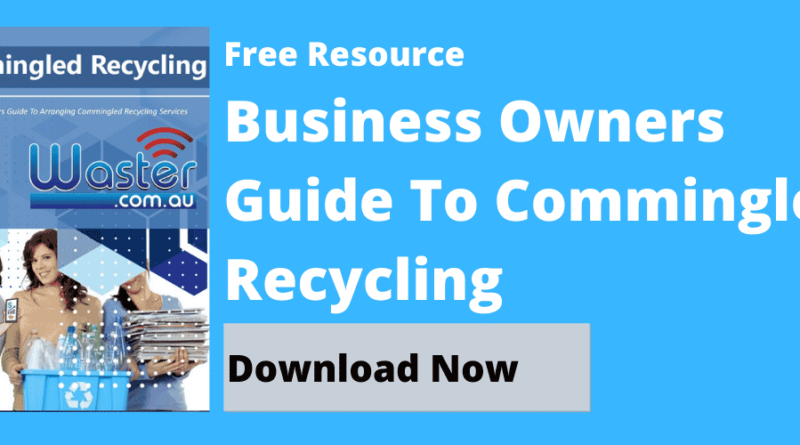Why Does Recycling Innovation Not Get More Investment? ♻️ Podcast Ep. 34 Don’t Be A Waster
Energy Disrupter
Why Does Recycling Innovation Not Get More Investment? ♻️ Podcast Ep. 34 Don’t Be A Waster
Listen on Apple Podcasts Listen on Spotify Listen on Google Podcasts Listen on Stitcher Listen on Amazon Music
Transcript: Why Does Recycling Innovation Not Get More Investment?
Hello and welcome to Waster! Or actually, that’s not what it’s called. It’s called Recycle: Don’t be a Waster or our regular podcast on all things recycling. On a lot of our podcasts, we talk about innovation and changes to recycling and how, I suppose, home innovation can save the world. You know, is the dream and how recycling can improve outcomes for the environment and everything else. But look, I’ll be honest, I think there are significant barriers to innovation in the world of recycling and in the world of just the environment in general.
>Download Now: Free PDF Business Owners Guide To Commingled Recycling Bin Services
And, I suppose I just want to put, you know, put a few of those down in this podcast today. Clearly, recycling waste, they’re huge sectors. Clearly, you know, we care about the environment, clearly, it’s vastly important that we recycle more. But I’m going to argue that I don’t think we have enough, you know, recycling investment. I don’t think we have enough, you know, venture capital investment – certainly not similar to what we see in other sectors, you know. You look at Silicon Valley Tech startups and where the big money goes. And so much of it goes to, you know, you look at Amazon which is fundamentally online retail, you know, Uber which is, you know, I suppose, you can call it traffic management system or a public transport system – to something a ride share system or whatever you want to call it you know Google online search etc.
But when you think about how much publicity we talk about, how much the news talks about Recycling and the environment, why are there little? Why are there not as many massive startups in the sector? I suppose some of my thoughts on this were – I’ve got a few a couple of thoughts, you know, one of the issues with recycling, I suppose, is it’s a heavily regulated sector even if people don’t want to admit this. It’s a very regulated area whereby government legislation pushes people to do things that oftentimes, they’re not overly keen on doing from a commercial perspective.
Act 2: Why Does Recycling Innovation Not Get More Investment?
You know, whether it’s Coca-Cola or Pepsi Cola or major manufacturers having a long-term stewardship or ownership or responsibilities to recycle the bottles etc., they make you know a lot of the companies traditionally haven’t really thought about – that haven’t really focused on that or internalized those costs. So a lot of what leads to these, you know, to lead to people making decisions from a financial basis is based about around legislation. You know, whether it’s as simple as a product stewardship, you know that a Nespresso pod has to be recycled, you know. This sort of stuff that councils local municipalities have to recycle x amount that we can’t incinerate waste due to this reason that our target for a country is to get recital into this.
You know, a lot of these are government mandated numbers. Are they really becoming organically from the people? Are they really coming organically from companies themselves? It’s a question. Look, on this podcast, we often say that if you’re a greener business, it will save you money up to an extent, you know. If you recycle more, less goes to landfill. We often say that, and we also say that the, you know, customers will go to your business or are more likely to go to your business if, you know, if you’re a greener business.
If you don’t you know, use plastic straws etc. and to some extent, that is true. But… it… I don’t think it leads to real innovation and investment in the sector, you know. Even in Australia, in most of our states and territories, we have what are called waste levies, which are designed to do two things. Fundamentally, it charges money for dumping at landfill in New South Wales. It’s now… I can’t remember what the exact number is, but it’s again close to 200 bucks a tonne, I think. I don’t have it in front of me and for some reason it slipped my mind. But we’re talking significant amounts of money and with that, the argument is that it makes recycling relatively cheaper, not absolutely cheaper, but relatively cheaper vis-a-vis.
Act 3: Why Does Recycling Innovation Not Get More Investment?
Generally, this money is supposed to be reinvested into recycling, recycling technology, recycling facilities etc. But we’ve covered in this podcast that not all of that money, and to be honest, less than half goes into actual recycling. Recycling grants and recycling investments are really quite low and they’re not generally based around innovative technology, you know, Venture Capital style technology. At least in New South Wales and in Victoria, they’re mostly based around very practical, proven implementation of recycling machines, of recycling methods, you know, rather than inventing new ones, so there isn’t is there really a market for invention of these new machines, new items.
I’m going to argue… no, there are already quite a few recycling technologies that are really promising we can, you can recycle nappies or diapers but in the… at the minute, in Australia, nobody does it despite the fact plants exist. You can create oil from plastic, but again, it’s very, very, very, VERY low Tech, or sorry, very lowly spread through in the global economy. And you ask yourself, why is this isn’t it something that people value more? But, I suppose, fundamentally, the argument has to be that investors see it as a low Financial return.
You know, they think they invest significant funds clearly risky into this sector. They may not get the financial returns that they’re looking for and so, these are those funds are not tend to be done to be available, you know, often in the newspapers. You’ll see or the media, you will see University spin-offs, you know, science graduates etc. with a new method of recycling or doing something like that – whether it’s bugs eating plastic, you know, whether it’s cleaning up the Pacific Garbage Patch, whether it is, whether it is, you know, creating oil from plastic.
Act 4: Why Does Recycling Innovation Not Get More Investment?
A lot of these things, there’s promising technologies that really could benefit from significant investment, but that investment doesn’t seem to be there. And I suppose, why like, I suppose, if you’re an investor, a private investor, you’re there is an aspect of a charity aspect to this stuff, you know. If we clean up the Pacific Garbage Patch who is going to pay for that? Does that actually create wealth?
It does create wealth because clearly, a better environment is good. It creates, you know, better health, better… So ecosystems, better tourism opportunities and better wildlife. It is clearly creating wealth for the world, but that wealth is not captured or internalized in actual dollars… dollar bills. And so when it isn’t anyone, the investors are not going to be a windfall. Realistically, any money they’re spending cleaning up the Pacific Garbage Patch is money.
This band is it’s highly unlikely they will receive huge returns for people benefiting from that environment. So, you know, I think that this is something that probably we want to look at, like, I think generally, people do what they were financially incentivized to do. In corporations and in life in many ways, whether we want to accept it or not, and for one way or another, recycling innovation is not financially incentivized significantly enough, you know, for people to risk capital on. Risky new ventures, risking new innovation, and so that money goes to other things.
Act 5: Why Does Recycling Innovation Not Get More Investment?
It goes to better CRM systems or,, you know, better email systemsm which do they create the same value for the world and the environment, like, almost certainly, I think not. But you know, how do we create, I suppose, how do we create a marketplace that can incentivize doing this? And, you know, incentivize people to invest and, I suppose, the problem again we face, I suppose, it’s the beauty of the national world that, you know, fresh air is free or at least we’d like to believe it is.
Clearly, you know, clearly, if you live in a certain country where you have a lot of industrial production and low environmental standards, breathing fresh air is not free. Maybe in Australia, we’re lucky that it is, you know. It is free to breathe fresh air still. But I suppose when you have that, it makes it difficult for investors, financial investors to allocate the capital, in the words of investment, to the place that will give those best returns.
And then I would argue we are allocating capital inefficiently. We’re giving it to Instagrams and you know those sort of aspects, social media jobs, from Tech talk to whatever else rather than something that really will benefit us for the future. So the other issue there is that, I suppose. It’s the dead hand of the government. Once we arguing for more government regulation, because when government regulation comes in, you know, it tends to lead to, you know, it has to lead to slowness and it’s almost the opposite of capital markets.
Act 6: Why Does Recycling Innovation Not Get More Investment?
Can government legislation create a market for this stuff? You know, one of the issues would be if one country brings in significant methods of, you know, creating a market for this, it might hinder their other businesses and then business will go to a lower-taxed economy etc., you know, almost like a capital flight to somewhere where it’s more free market capitalism. So it’s a tricky one, but I think clearly, you know, we need to find some method of fixing this problem because otherwise, we will not have enough investment in innovation, in new technologies, in new ways of recycling and in new ways of doing it.
And then fundamentally, we’re left with just, you know, rules and regulations preventing things from happening. But it, you know, which do they have a lot of results clearly, and we’re seeing that in the phasing out of single-use plastics. But are we optimizing what we’re doing? Are we investing in the new opportunities? And you know, how many great ideas, how many great recycling ideas are just going nowhere?
Because people need to get paid. People need to make a living, and they will probably invest their time and efforts into something that’s more financially beneficial to them and their families. So that’s my thoughts today and it’s something I think, you know, no one’s saying that we’re gonna, you know, the, you know, some of the the ideas about this stuff because it’s the natural world and the environment, people. Obviously, nobody wants to give them to a corporation, you know, but there has to be some method of incentivizing investment that doesn’t give away all of our birthright, you know, to the natural world and the enjoyment of of the natural environment. So let’s… yeah, I’d be interested to hear your feedback and ideas on this. But you know, I’d love to see a lot more investment in recycling. Okay, have a great day!
















